Chum : SAPALTA Semi-Dwarf (Mustang) (Orchard Grade)
$44.95
An 'orchard grade' is a tree that may be somewhat shorter, slightly crooked, or a bit scratched, or for some other reason is not a perfect front lawn specimen. These trees will work just as well in an orchard as a first or number one would, since they still produce the very same fruit.
One of the first chum varieties was developed by Professor N.E. Hansen of South Dakota in 1908. He called it 'Sapa'. Later, in 1941, a Sapa seedling was selected near Brooks, Alberta, which had superior fruit size and quality to its parent. Consequently it was named 'Sapalta' – derived from 'Sapa' and 'Alberta'. The reddish purple fruit has very dark red, sweet/tart flesh. Sapalta is one of the best for fresh eating. It makes great jam and is good for canning. Tree form and size is similar to Compass but the fruit is sweeter, more freestone and ripens slightly earlier.
NEEDS A POLLENIZER | ZONE 2/3 | HARVEST: MID-LATE AUG.
5 reviews for Chum : SAPALTA Semi-Dwarf (Mustang) (Orchard Grade)
Only logged in customers who have purchased this product may leave a review.
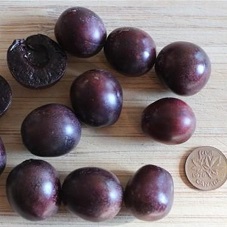
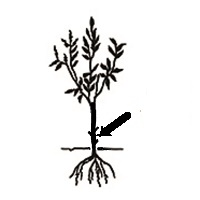
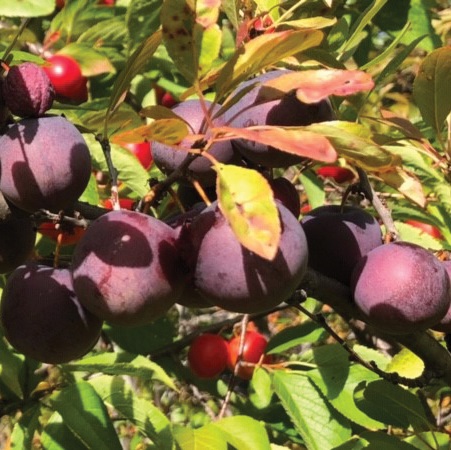
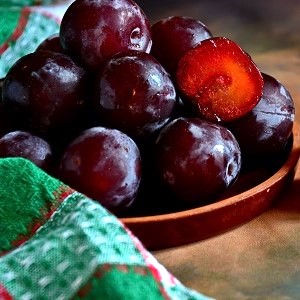
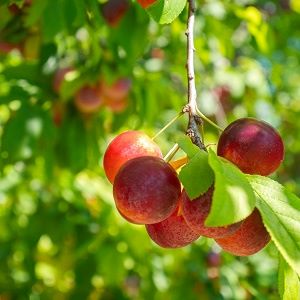
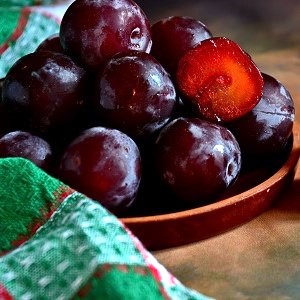
michael rossy (verified owner) –
Kelly D. (verified owner) –
Always love purchasing from you guys!
Maxime Desruisseaux (verified owner) –
John Janssen (verified owner) –
Lynn Martin (verified owner) –